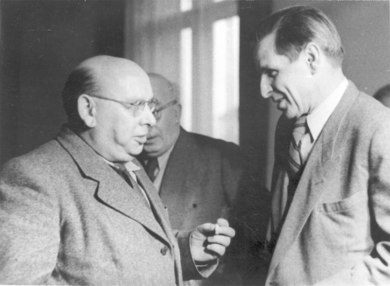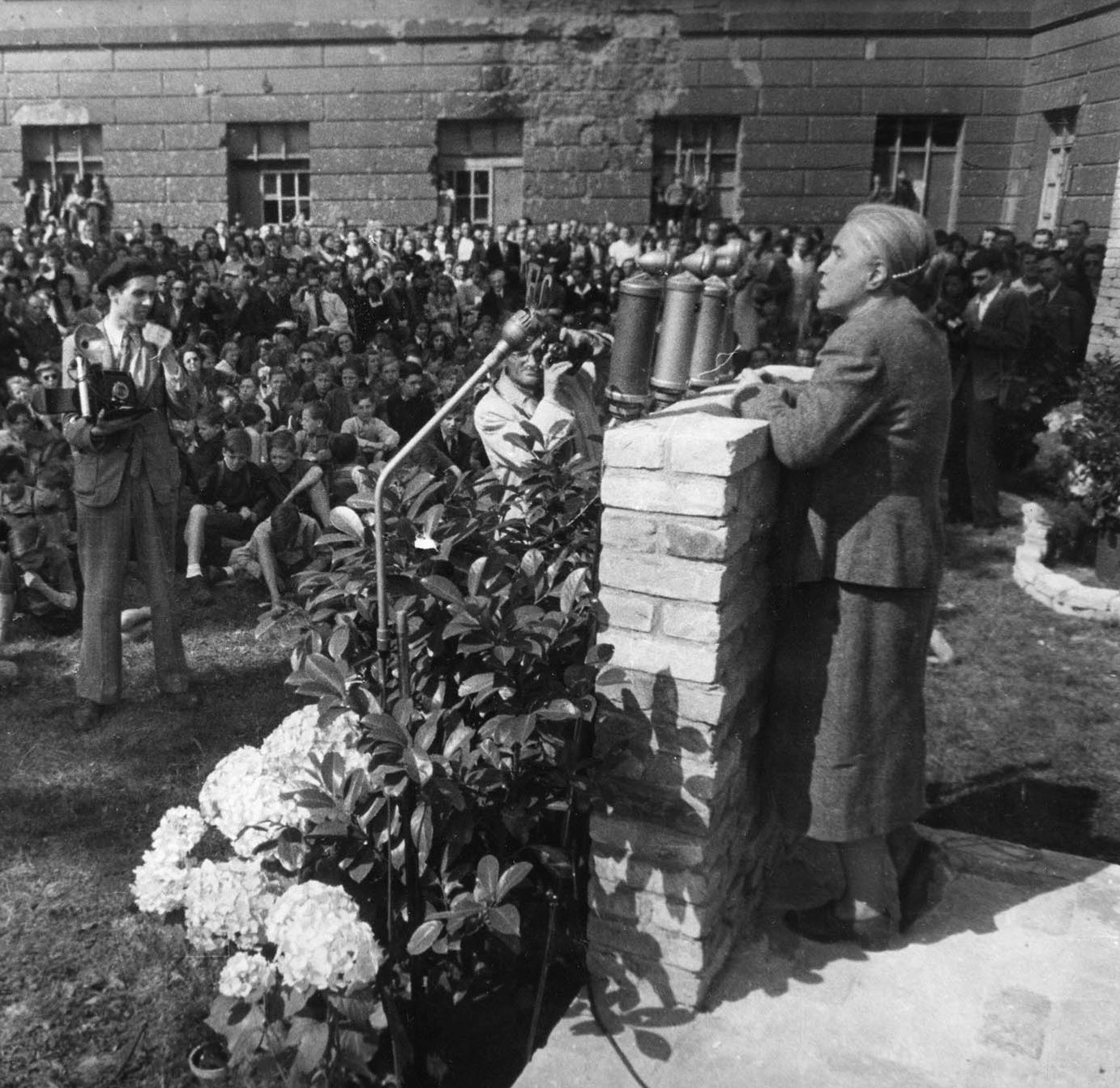Remigration to the Soviet occupation zone and the GDR
Remigration to the Soviet occupation zone and the GDR
Ihr sollt wissen, daß Euch die Heimat nicht vergessen hat und daß wir auf Euch warten, […] Die Zeit der Emigration ist zu Ende, innerhalb Deutschlands und außerhalb seiner Grenzen.
[You should know that your home country has not forgotten you and that we are waiting for you, [...] The time of emigration is at an end, within Germany and beyond its borders. (ed. trans.)]
Cultural Association of Democratic Renewal in Germany: Call to emigrants, 17 November 1945
Emigrants, especially those with a communist background, returned from Switzerland, Sweden, the Soviet Union and Great Britain to the Soviet occupation zone and later the GDR. It was not possible to leave Mexico, South America and the United States until 1946. Founded among others by Johannes R. Becher, the Cultural Association of Democratic Renewal in Germany sent out personal invitations and organised the return journey.
Expectations, professional and material prospects decided whether the Soviet occupation zone and later the GDR would become a place of residence and work. Consistent anti-fascist propagation was an essential condition.
The German Writers' Congress, which was held from 4 to 8 October 1947 in Berlin, was the first joint event for returnees and the authors who had remained in the country and whose opportunities for publication had been restricted from 1933-1945 in Germany.
Large numbers of works created in exile were published in the Soviet zone and the GDR, forgotten books from the time of the Weimar Republic were re-released, commissions for the fine arts and music were issued. Specific goals of the remigration process included providing cultural experiences from all over the world and promoting young artists. The Aufbau publishing house and the Berliner Ensemble were also created.
There were difficulties in producing new works if they did not conform to the cultural policy of the early GDR, e.g. during the formalism controversy.
In the GDR, returnees received awards and honours and were given high positions in cultural institutions. However, appropriations, feelings of alienation, the East-West controversy and the distrust with which the SED viewed the artists who had returned from Western countries of emigration (including Hanns Eisler, Paul Dessau, Bertolt Brecht, John Heartfield) had an unsettling effect in some cases.
"Returned, returned - alas - I find my home grey and cold [...] What should I do here?", Eisler's Faust declaims in the libretto of Johann Faustus (1952), an opera which he never finished following a controversial debate.
Further reading:
Krohn, Claus-Dieter (Hg.): Handbuch der deutschsprachigen Emigration 1933-1945. Sp. 1025-1027. Darmstadt: Wissenschaftliche Buchgesellschaft 1998.
Krauss, Marita: Heimkehr in ein fremdes Land. Geschichte der Remigration nach 1945. München: C.H. Beck 2001.
Schätzke, Andreas: Rückkehr aus dem Exil : Bildende Künstler und Architekten in der SBZ und frühen DDR. Berlin: Reimer 1999.



